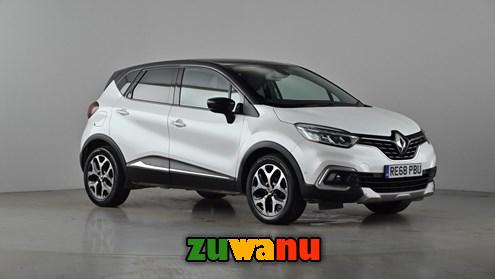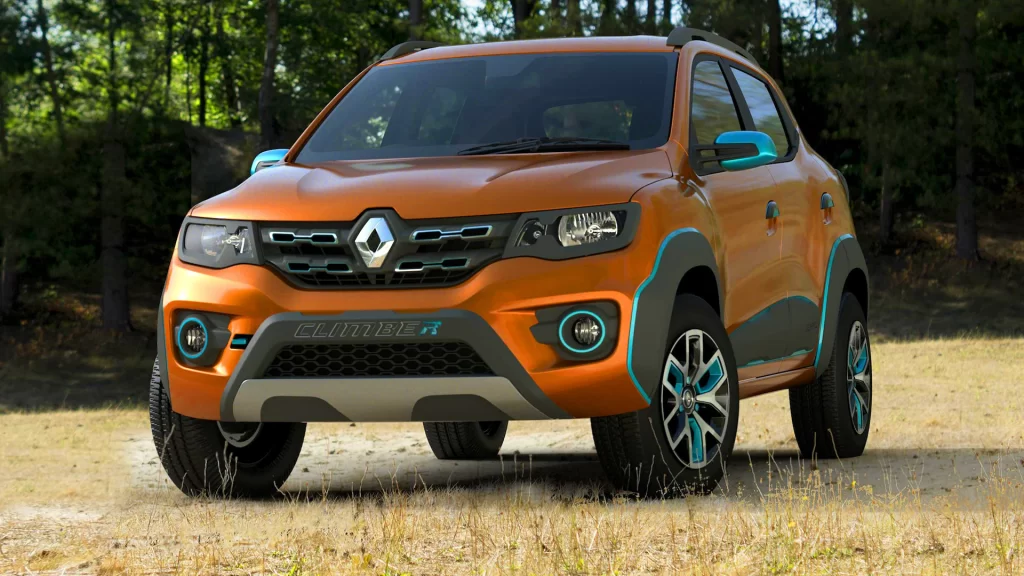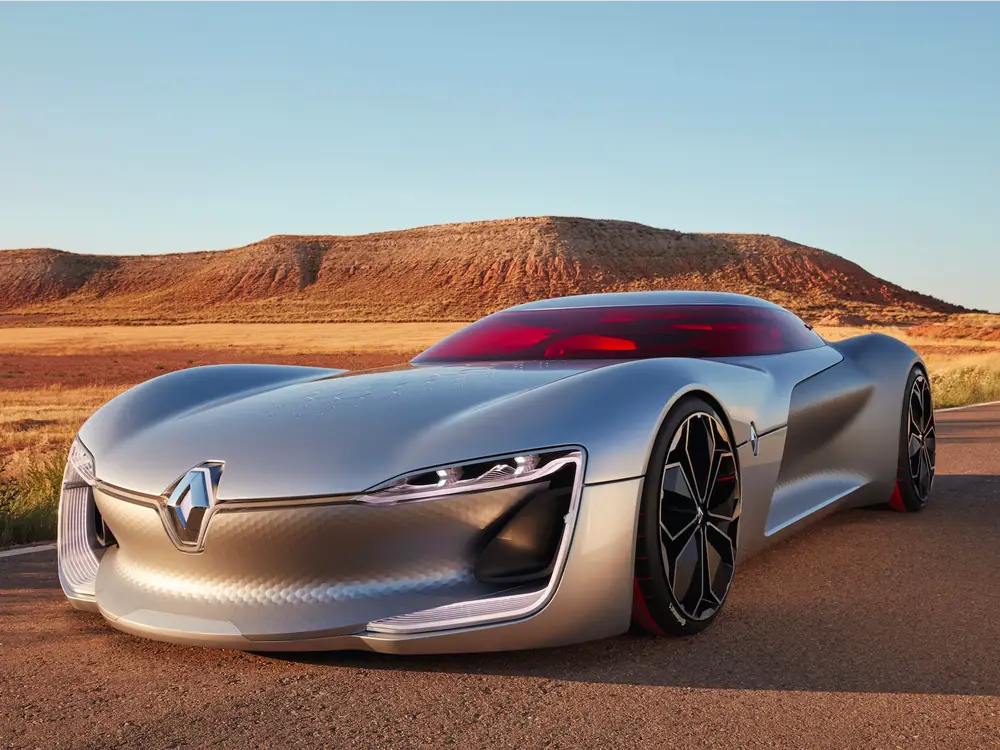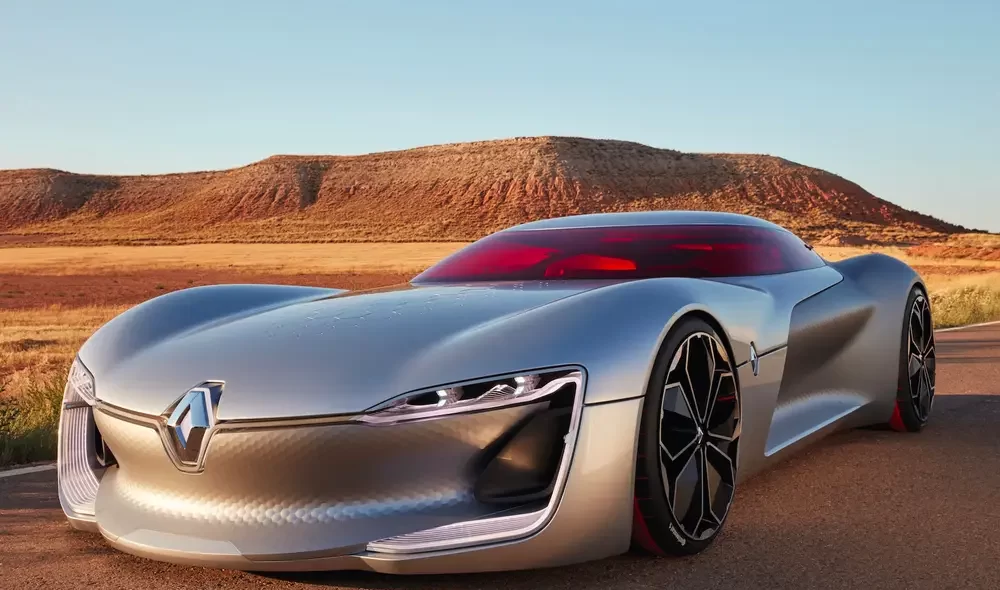A Comprehensive Guide to Renault Cars: Design, Infotainment, Durability, and Fuel Economy
Table of Contents
Introduction to (Renault Cars)
Renault, a well-established French automotive manufacturer, has a long and storied history in the automobile industry. Known for producing a wide range of vehicles, from compact city cars to versatile SUVs, and even high-performance sports cars, Renault has a vehicle for every need and preference. In this comprehensive guide, we will explore everything you need to know about Renault cars, from their distinct design philosophy to their interior infotainment systems, durability, and fuel economy. We’ll also highlight five of the best Renault cars across various lineups and trims, and provide you with a list of frequently asked questions about Renault cars, along with their pros and cons.

- Renault’s Design Philosophy
Renault is renowned for its innovative and distinct design philosophy. The company places a strong emphasis on combining aesthetics with functionality, creating vehicles that are not only visually appealing but also practical. Renault’s design language can be summarized in a few key points:
A. Fluid Lines: Renault’s cars often feature fluid, sweeping lines that give their vehicles a sense of dynamism and motion. These lines are not only pleasing to the eye but also contribute to the overall aerodynamics of the car.
B. Signature Front Grille: Many Renault models bear a signature front grille, featuring the brand’s diamond-shaped logo prominently. This grille design is both distinctive and elegant, reinforcing Renault’s brand identity.
C. LED Lighting: Renault places significant importance on LED lighting technology. LED headlights and taillights not only enhance visibility but also give the vehicles a modern and premium look.
D. Eco-Friendly Materials: Renault is committed to sustainability and uses eco-friendly materials in its cars’ interiors. Recycled or sustainable materials can often be found, reducing the company’s environmental footprint.
E. Customization Options: Renault offers a wide range of customization options, allowing customers to personalize their vehicles to match their tastes. From paint colors to alloy wheels, there’s a lot of flexibility in making a Renault car uniquely your own.
- Interior and Infotainment
Renault has invested heavily in improving the interior quality and infotainment systems in their vehicles. The goal is to provide a comfortable and technologically advanced driving experience. Key features of Renault’s interiors and infotainment include:
A. Comfortable Seating: Renault focuses on creating comfortable seats that offer adequate support for long drives. The materials used for seat covers and upholstery are carefully chosen for durability and comfort.
B. User-Friendly Infotainment: Renault’s R-Link infotainment system is designed to be intuitive and user-friendly. It offers a touchscreen display that varies in size based on the model and trim. The system includes features such as navigation, smartphone integration, and compatibility with various apps.
C. Connectivity: Renault vehicles often feature connectivity options like Bluetooth, USB ports, and Apple CarPlay/Android Auto integration. These features allow drivers and passengers to stay connected and entertained while on the road.
D. Sound Systems: Many Renault models come with premium sound systems, such as the Bose audio system, which provides exceptional audio quality for music enthusiasts.
E. Spacious Interiors: Renault cars are known for their spacious interiors, making them a practical choice for families and travelers. The rear seats usually offer ample legroom and cargo space, enhancing the overall comfort and utility of the vehicle.
- Durability and Reliability

Renault has been working diligently to improve the durability and reliability of their vehicles. This is essential to gain the trust of customers and ensure long-term satisfaction. Key aspects of Renault’s approach to durability and reliability include:
A. Rigorous Testing: Renault subjects its vehicles to rigorous testing and quality control procedures to ensure that they meet or exceed industry standards. This includes various road tests and assessments in various weather conditions.
B. Warranty Coverage: Renault provides warranty coverage on its vehicles, which typically includes a basic warranty, a powertrain warranty, and corrosion coverage. This offers peace of mind to customers, knowing that their investment is protected.
C. Quality Materials: Renault uses high-quality materials in the construction of its vehicles, including advanced alloys and composites to enhance structural integrity and durability.
D. Regular Maintenance: As with any vehicle, regular maintenance is key to ensuring durability. Renault provides guidelines and schedules for maintenance to keep the car in top condition.
E. Customer Feedback: Renault values customer feedback and uses it to make continuous improvements. This commitment to addressing customer concerns helps in maintaining and improving the brand’s reputation for durability.

- Fuel Economy
In an era of rising fuel costs and environmental concerns, fuel economy is a crucial consideration for many car buyers. Renault has been attentive to this concern and offers a range of fuel-efficient options in their lineup. Factors contributing to Renault’s commendable fuel economy include:
A. Efficient Engines: Renault engineers have developed a series of efficient engines that provide a balance between performance and fuel economy. These engines utilize technologies like turbocharging and direct injection to optimize fuel consumption.
B. Lightweight Construction: Many Renault models are built with lightweight materials, which reduces the overall weight of the vehicle. A lighter car requires less energy to move, which translates to improved fuel efficiency.
C. Start-Stop Technology: Renault vehicles are equipped with start-stop technology, which automatically turns off the engine when the car is stationary, such as at traffic lights. This feature helps conserve fuel by reducing idling.
V12 Engines in Aircrafts: A Comprehensive Guide
D. Hybrid and Electric Options: Renault has ventured into the realm of electric vehicles (EVs) and hybrid technology, offering models like the Renault Zoe and Captur E-Tech Plug-in Hybrid. These vehicles are designed to be highly fuel-efficient and eco-friendly.
E. Aerodynamics: Renault pays attention to the aerodynamics of their vehicles, ensuring that they have a streamlined design to reduce drag. Improved aerodynamics helps enhance fuel economy at higher speeds.
- Five Best Renault Cars and Trims
To help you explore the range of Renault vehicles, here are five of the best Renault cars across different lineups and trims:
A. Renault Clio
The Renault Clio is a compact car that has been a popular choice for city driving and daily commuting. It features a chic and stylish design, with a refined interior that includes a user-friendly infotainment system. The Clio comes in various trims, with the higher-end trims offering advanced features like a digital driver display, premium audio systems, and advanced safety technologies.
Pros:
- Striking design and customizable options.
- Excellent fuel economy with the E-Tech hybrid version.
- Comfortable and spacious interior for its class.
- Well-balanced handling and ride comfort.
Cons:
- The base engine can feel underpowered.
- Rear visibility may be limited due to the design.
- Some advanced safety features are optional extras.
B. Renault Captur
The Renault Captur is a popular subcompact SUV known for its versatility and comfortable ride. Its interior is designed with quality materials and offers a high seating position, providing a commanding view of the road. The Captur is available in various trims, and higher-end models come equipped with advanced safety systems and a well-appointed infotainment system.
Pros:
- Spacious and flexible interior with a sliding rear seat.
- Available in hybrid and plug-in hybrid variants.
- Comfortable ride quality and quiet cabin.
- Numerous customization options for a personalized look.
Cons:
- Base engine can feel sluggish.
- Some advanced safety features are optional.
- Cargo space is limited compared to some rivals.
C. Renault Megane
The Renault Meg
ane is a compact family car available in different body styles, including a hatchback, sedan, and wagon. It boasts a stylish design and a well-crafted interior. The Megane comes in multiple trims, with high-end models offering advanced technology, premium materials, and powerful engine options.
Pros:
- Attractive and modern design.
- Efficient turbocharged engine options.
- Spacious and comfortable interior.
- Tech-savvy infotainment system with a large touchscreen.
Cons:
- Limited rear headroom in some body styles.
- Advanced safety features might not be standard on all trims.
- Ride quality can be slightly firm on rough roads.
D. Renault Kadjar
The Renault Kadjar is a compact SUV that offers a comfortable and spacious interior with a focus on family-friendliness. It features a practical design with good cargo space and comes with a user-friendly infotainment system. The Kadjar is available in different trims, including higher-end variants with advanced safety features.
Pros:
- Roomy and well-designed interior with ample storage.
- Comfortable and smooth ride quality.
- Optional all-wheel drive for improved traction.
- Easy-to-use infotainment system.
Cons:
- Base engine can be underpowered for some.
- Interior materials could be of a higher quality.
- Fuel economy is average for the segment.
E. Renault Talisman
The Renault Talisman is a midsize sedan designed for those seeking a combination of comfort, style, and advanced features. Its elegant design is complemented by a well-appointed interior. The Talisman is available in various trims, with high-end versions featuring advanced safety and infotainment technologies.
Pros:
- Elegant and luxurious design.
- Spacious and comfortable interior with quality materials.
- Advanced driver assistance systems available.
- Smooth and quiet ride quality.
Cons:
- Limited body style options (only available as a sedan).
- Fuel economy may be lower than some rivals.
- The base engine may lack power for some driving conditions.
Frequently Asked Questions about Renault Cars
- Are Renault cars reliable?
Renault cars have improved their reliability over the years, and many models now offer competitive durability and longevity. The company has made significant efforts to enhance quality control and provide warranty coverage, which adds to the overall reliability of their vehicles.
- Do Renault cars have good fuel economy?
Yes, many Renault models are known for their good fuel economy. The company offers a range of efficient engines, lightweight construction, and hybrid or electric options to cater to different needs and preferences.
- What is the warranty coverage for Renault cars?
Renault typically offers a basic warranty, a powertrain warranty, and corrosion coverage for its vehicles. The specific terms and coverage details may vary by region, so it’s essential to check with your local dealership for the most accurate information.
- Are Renault cars safe?
Renault vehicles are equipped with a variety of safety features, including airbags, stability control, and advanced driver assistance systems in higher-end trims. Safety ratings can vary depending on the specific model and trim, so it’s advisable to check the safety features and ratings of the specific Renault car you’re interested in.
- How does Renault compare to other car manufacturers in terms of design?
Renault is known for its distinctive and innovative design philosophy. Its designs often emphasize fluid lines, eco-friendly materials, and a signature front grille. The design is a matter of personal preference, and Renault’s unique approach sets it apart from other car manufacturers.
- Do Renault cars come with hybrid or electric options?
Yes, Renault offers hybrid and electric options in its lineup. Models like the Renault Zoe and Captur E-Tech Plug-in Hybrid are examples of the brand’s commitment to eco-friendly driving. These vehicles are designed to offer improved fuel economy and reduced environmental impact.
- How does Renault’s infotainment system compare to competitors?
Renault’s R-Link infotainment system is user-friendly and includes features like touchscreen displays, navigation, smartphone integration, and compatibility with various apps. The quality and ease of use of the infotainment system can be subjective, and it’s advisable to test drive a Renault vehicle to evaluate it based on your preferences.
- Are Renault cars good for families?
Many Renault models are suitable for families due to their spacious interiors, user-friendly features, and safety options. Models like the Renault Captur and Kadjar, with their versatile interiors and practicality, are popular choices for family-oriented consumers.
Pros and Cons of Renault Cars
Pros:
- Distinctive and innovative design philosophy that sets Renault apart.
- A wide range of models, including compact cars, SUVs, and electric vehicles.
- Fuel-efficient options available with efficient engines and hybrid/electric variants.
- Comfortable and spacious interiors with a focus on user-friendly features.
- Commitment to sustainability with the use of eco-friendly materials.
Cons:
- Base engine options may feel underpowered in some models.
- Some advanced safety features are optional and not included as standard.
- Interior materials in certain models may not match the quality of premium competitors.
- Limited body style options for certain models.
- Depending on the region, resale value may not be as strong as some other brands.
Conclusion
Renault is a car manufacturer with a rich history, known for its distinctive design philosophy, commitment to innovation, and an expanding range of models to meet the diverse needs of consumers. Their vehicles emphasize a balance between aesthetics and functionality, providing comfortable and spacious interiors, user-friendly infotainment systems, and fuel-efficient options. Renault has made significant strides in enhancing durability and reliability, making their cars a worthy consideration for those in search of a practical, stylish, and eco-friendly driving experience.
As with any vehicle purchase, it’s essential to thoroughly research and test drive specific models to determine which Renault car best suits your preferences and requirements. The pros and cons highlighted in this guide provide valuable insights into the brand’s strengths and areas for improvement. Ultimately, Renault’s commitment to innovation and sustainability makes it a significant player in the automotive industry, and its cars continue to evolve to meet the demands of modern consumers.

